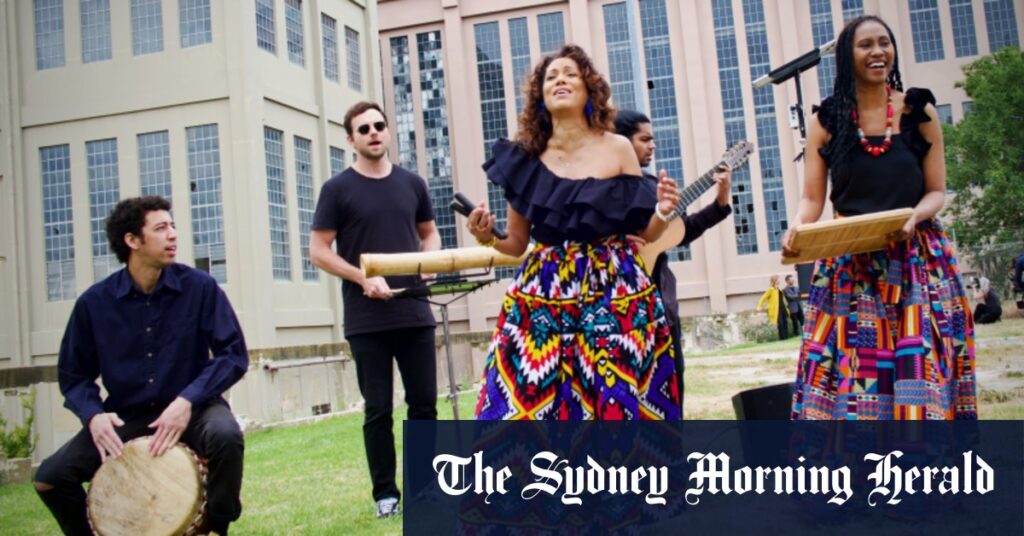In London, there’s the Tate Modern, which was converted from a decommissioned power station, and Printworks, which housed printing presses; there’s the Carriageworks in Sydney; and there is Brisbane’s Powerhouse, which was also a power station.
“I don’t think you will find anyone in the Perth arts and culture industry who would disagree with the idea that it is time for Western Australia to have an offering like this,” Reece said.
Since the being decommissioned in 1981 the future of the power station has been at the centre of many startlingly different grand plans, from the idea of it being the site for a football stadium (it would eventually be built on the other side of the river) to a $500 million museum (scrapped by Colin Barnett’s Liberal government, who deemed it too expensive).
There was another flurry of activity in 2020 when it was announced that Seven West Media owner Kerry Stokes and mining magnate Andrew Forrest had joined forces to develop the prime 8.5-hectare riverfront site into a mixed-used development, a dream that was shattered when the WA high-flyers backed out of the joint venture.
The Cook Labor government recently changed tack in the hope of recouping the $100 million it spent remediating the land, moving away from a mixed-use development to a high-end hotel.
At Wednesday’s media event for the Perth Festival activation, Planning Minister John Carey would not be drawn on the commercial plans for the power station, insisting that whatever the building’s future public access would be a given.
“There are challenges internally. There are some limitations. But there are so many enormous opportunities, and the state is giving serious consideration about how we ensure we bring this building back to its beautiful form, but also make sure that it is a destination for both locals and tourists,” he said.
Casa Musica artists Salama at Wednesday’s media event for Perth Festival 2024. Credit: Mark Naglazas
The activation marks a significant shift to the eastern end of the city and away from the traditional culture palaces for the Festival 2025, with the Perth Town Hall to be the second major hub called The Embassy.
Inspired by the now-demolished Embassy Ballroom – the dance hall on the corner of Williams Street and The Esplanade that was an entertainment mecca for multiple generations – the mid-town Festival hub will revive (according to the program) “the swagger of department store balls, New Year’s Eve blowouts and old-school dance lessons”.
Next year’s festival will also move into Forrest Place, where the event was launched on Wednesday night (the traditional home of festival launches, the Perth Concert Hall, is closed for renovation).
Loading
“We are thrilled to be moving into Forrest Place and making it the free summer dance hub. It is a space for community, it is a thoroughfare, it is a place of protest and expression,” Reece said.
“I’m really passionate about bringing the centre of the city to life. We are the only major festival in this state and I see it as our role to bring vitality to the heart of the capital. But we are equally committed to embracing the neighbourhoods and communities that make up our urban sprawl.”
The determination to reach beyond the centre into places that have not been traditional Perth Festival hubs, such as the East Perth Power Station, is embodied by this year’s opener, Karla Bidi (Noongar for “fire trail”), an installation using beams of light, sculptures and sound that will be placed at various location on the river from Guildford to Fremantle.
“I love the idea of people walking along a river with their dogs or driving across a bridge or looking outside the window and seeing these beacons of light each year and saying, ‘Perth Festival is back’. It is a very simple way of illuminating our beautiful artery and saying, ‘You’re welcome’,” Reece said.
Reece, who is the first WA-born director in Perth Festival in his 71-year lifespan, believes the role of the event has changed since the days when it was a showcase of the best of international arts.
“You have to dig deeper, you have to work harder to find works that have a connection to this place. It is about finding work that sparks a conversion about our community,” she said.
Perth Festival runs from February 7 to March 2.
Read the full article here
